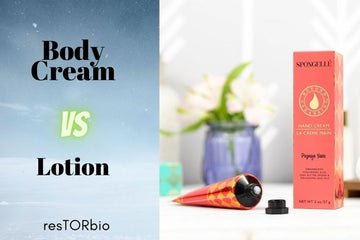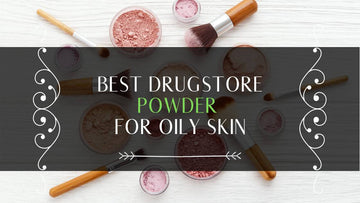
When it comes to keeping your skin healthy and hydrated, there is a lot of debate over the use of body cream vs lotion. Some people swear by the nourishing and hydrating properties of body cream, while others find that lotion is more effective at keeping their skin hydrated.
So, which one is truly better for you?
What is Body Cream?

The cream is more suitable for dry skin than lotion. The cream is thicker and more moisturizing, which helps to repair dry skin. It has a different texture because it contains more oil than water. This makes it thicker. It has a higher viscosity which means that it contains more oil than water. This results in a sticky mixture.
Creams are often a mixture of 50% oil and 50% water. Creams with a higher oil content may take longer to dry. After application, your skin may feel oily or greasy to the touch.
Body creams can often be used to protect the skin and lock in moisture. For cracked and severely dry skin, body cream can provide relief. This product will give full, thick coverage that will protect your skin from damage caused by the cold.
What is Body Lotion?

It can moisturize the skin with body lotions. It is formulated with a thinner formula and aims to moisturize the skin in the same way as body creams. This body lotion is ideal for daily maintenance and helps maintain healthy, smooth skin.
The body lotion is best for dry to typical skin types. Lotion should be used during winter when the humidity is lower, and the skin's moisture levels drop.
The body lotion is different because it contains more oil than water. This makes it thinner and less likely to penetrate the skin. Body lotion can provide surface-level moisture and relief from dryness.
To achieve the same results with body cream, you will need to use more. It has a higher water content, which results in a non-greasy formula. This product will not stick to your skin and leave behind any greasy residue.
Check out our top-rated body lotion: Best Body Lotion: Top Brands Review
Body Cream vs Lotion - Key Differences

In a nutshell, body creams are thicker than lotions. Hadley King M.D., a board-certified dermatologist, says lotions had a higher water percentage than creams. This made them more spreadable and less greasy. Creams, however, tended to contain heavier ingredients like shea butter or coconut oil to provide moisture.
Jeanine Downie (board-certified dermatologist), co-host of The GIST Show, says that body creams were more difficult to apply because they contain more oils and butter.
There are no strict rules about what body cream and lotion are. You may find a light product that is marketed as a cream or a butter-thick lotion. The difference can be attributed to marketing, but most experts agree it is a textural distinction.
Read also:
Body Butter Vs Lotion: Which Is Better For Your Skin?
Body Oil Vs Lotion: Which Is Best For Your Skin?
When To Use Body Cream
Do you have a dreamy cream that you want to try? Before you start slathering it on, keep these things in mind:
1. You Have A Dry Skin Type.
King says that creams tend to be thicker and greasy. They will often have more excellent occlusive properties. However, body creams can be used for dry skin types, which may require more help to keep hydration in place. However, those with sensitive or dry skin may find a thick cream that is suitable for layering the moisture on thick.
2. During The Night or Colder Months
Even if your skin isn't dry, it may be beneficial to apply body lotion during the winter months. King says, "This will be especially important during the winter to treat and prevent dry skin, supporting skin barrier, and locking in moisture."
Timing is also essential. The skin is more porous at night, which can cause a significant loss of hydration. Experts recommend that you apply a thicker, more occlusive moisturizer prior to bed to reduce transepidermal water loss.
3. Your Hands, Knees, and Elbows.
You can also massage a rich cream onto dry areas of your body, such as the hands, feet, and elbows. Downie says that paws tend to become drier due to constant washing.
When To You Use Lotion
Here's how to choose a thinner lotion.
1. If Your Skin Is Oilier.
Most lotions are suitable for skin types that require some hydration but not an extra thick layer. Combination, oily or acne-prone skin, for example, still need hydration. However, a light water-based moisturizer can do the trick.
Those with acne-prone skin might fare better with a lotion, as these typically aren't as occlusive as their body cream counterparts--meaning, they don't include heavier ingredients (the shea butter, the coconut oil) that can be comedogenic for those prone to breakouts.
2. During the Day or In Humid Months.
You may not need a thick cream to keep your skin hydrated when moisture is hanging from the humid air. You may opt for lighter products, such as lotions to help your skin stay hydrated. You should hydrate your skin regardless of the weather. However, you might have some flexibility if the humidity is high.
King says that a thinner lotion is better for daytime use. "It's easier to absorb by the skin and leaves a less greasy residue." Also, lotions tend to dry faster and have a shorter slip time. This makes them more versatile for daytime use.
3. Place Your Hands On Your Chest, Back, and Shoulders.
King says that lotions are preferred for oilier or more clogged areas. Think about your chest, back and shoulders.
For The Conditions

Eczema
The National Eczema Association (NEA) states that ointments have the highest oil content and are the best moisturizers for eczema. Lotions are the third-most-popular moisturizer, followed by creams.
Gmyrek also agrees. She says that lotions are not usually thick enough or have too much water to be beneficial to people with eczema.
The NEA recommends the CeraVe Therapeutic Hand Cream.
Research has also shown that moisturizers have a positive effect on reducing the severity and flare-ups of eczema.
Psoriasis
Moisturizers can be used to treat psoriasis. Active ingredients, like vitamin E, help decrease the severity. This is confirmed by more research.
Research has shown that personalized solutions based upon shared decision-making by patients and health professionals are essential to successful psoriasis treatments.
Gmyrek recommends using cream or ointment to treat psoriasis. A lotion is the best option for psoriasis of the scalp.
Similar to eczema, you can also get creams or ointments for psoriasis.
Acne
Gmyrek advises that you use lotion, lotion, and lotion to treat acne. Creams that are too thick for acne sufferers would likely impede the pores and lead to more breakouts," Gmyrek says.
Many body and face lotions can be used on acne-prone skin like the Clean & Clear Dual Action Moisturizer or the Burt's Bees Acne Solutions Daily Moisturizing Lotion.
For their anti-inflammatory properties, some moisturizers may contain metals or botanical extracts.
- Green tea
- Aloe vera
- Witch hazel
- Allantoin (as comfrey).
- Licochalcone (from the licorice root).
Conclusion
Although there isn't a lot of between body cream and lotion, there is enough to suggest that they should be used for various skin conditions. The main difference is that body lotion is thicker than cream, while lotion can be thinned and sometimes even water-like. Hope that you enjoy our article.




